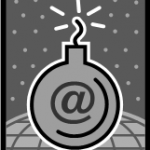 How you feel will determine how you act and most importantly what you say and how you say it. You need to adopt this mindset and be totally present with the prospect at the sales call. If you watch this video you will discover what your mindset has to be. The real trick is to maintain this mindset no matter what else I going on in your life outside of the sales call. If you can’t pay the electric bill, put it out of your mind, if your kid is sick, forget about it for an hour or so. If your company is in turmoil don’t think about it. If you are not confident in any way, imagine what it would feel like if you were confident. If you adopt the proper mindset, you will usually do and say the best that you are capable of and you will win more often than not. In the ART OF WAR the author states “The battle is won before the fighting has ever begun”. This is what he was talking about many centuries ago. It still applies today in your sales career.
How you feel will determine how you act and most importantly what you say and how you say it. You need to adopt this mindset and be totally present with the prospect at the sales call. If you watch this video you will discover what your mindset has to be. The real trick is to maintain this mindset no matter what else I going on in your life outside of the sales call. If you can’t pay the electric bill, put it out of your mind, if your kid is sick, forget about it for an hour or so. If your company is in turmoil don’t think about it. If you are not confident in any way, imagine what it would feel like if you were confident. If you adopt the proper mindset, you will usually do and say the best that you are capable of and you will win more often than not. In the ART OF WAR the author states “The battle is won before the fighting has ever begun”. This is what he was talking about many centuries ago. It still applies today in your sales career.
Mindset of a Winner
Is selling to technical people different?
 Not really!! The process of selling them is the same as for selling anyone else. Their pain may tend to be different … but then everybody’s pain is different. Don’t make the mistake of being intimidated by the technical people you might have to meet with. Ask them what their issues are, then ask them why that is important or how it affects their operation, etc. and pretty soon you will have their pain. If they need an explanation of how you solve the problem then you can bring in the right expert to explain it to them. As all salespeople know, bringing in the technical people too soon can derail the sale as they devolve into geek-speak and pain is nowhere to be found.
Not really!! The process of selling them is the same as for selling anyone else. Their pain may tend to be different … but then everybody’s pain is different. Don’t make the mistake of being intimidated by the technical people you might have to meet with. Ask them what their issues are, then ask them why that is important or how it affects their operation, etc. and pretty soon you will have their pain. If they need an explanation of how you solve the problem then you can bring in the right expert to explain it to them. As all salespeople know, bringing in the technical people too soon can derail the sale as they devolve into geek-speak and pain is nowhere to be found.
Your value to the customer
 Customers value salespeople and consultants who make them think and bring new ideas. The best way to do that is to ask questions that others are unable or unwilling to ask. And where do these questions come from you may ask. They come from your technical expertise, your knowledge of the industry, or your knowledge of the prospect and his or her business. The best use of your knowledge is a base from which to ask questions, not a repository of information from which to make a presentation.
Customers value salespeople and consultants who make them think and bring new ideas. The best way to do that is to ask questions that others are unable or unwilling to ask. And where do these questions come from you may ask. They come from your technical expertise, your knowledge of the industry, or your knowledge of the prospect and his or her business. The best use of your knowledge is a base from which to ask questions, not a repository of information from which to make a presentation.
Know When to Close
 It’s not about when you need it to close. It’s not about when you want it to close. Watch this 1 minute 4 second video and discover how know exactly when to close. The proper time to close is when the prospect is ready and you have completed the qualification steps in your sales process. If you try to close too soon you look pushy. If you wait too long you look disinterested and risk losing the account after you have spent time and resources nurturing it.
It’s not about when you need it to close. It’s not about when you want it to close. Watch this 1 minute 4 second video and discover how know exactly when to close. The proper time to close is when the prospect is ready and you have completed the qualification steps in your sales process. If you try to close too soon you look pushy. If you wait too long you look disinterested and risk losing the account after you have spent time and resources nurturing it.
Clean Out Your Pipeline
 When your pipeline contains too many deals which are unqualified and may never close, it will give you a bloated feeling. You know … sluggish, tired, feeling like you are getting nowhere. Pipeline bloat will slow you down and waste your valuable time making follow up calls and getting put off after put off. It is not only discouraging, its time consuming and not very much fun. Clean out your pipeline this week. Watch this video to get an idea how to do it. You may get a lot of no’s but you will be much more efficient and have a much more accurate forecast of future revenue. You will also learn how much work you need to do to rebuild the pipeline and close the deals you need to close to meet your financial goals. Besides that it is a lot of fun.
When your pipeline contains too many deals which are unqualified and may never close, it will give you a bloated feeling. You know … sluggish, tired, feeling like you are getting nowhere. Pipeline bloat will slow you down and waste your valuable time making follow up calls and getting put off after put off. It is not only discouraging, its time consuming and not very much fun. Clean out your pipeline this week. Watch this video to get an idea how to do it. You may get a lot of no’s but you will be much more efficient and have a much more accurate forecast of future revenue. You will also learn how much work you need to do to rebuild the pipeline and close the deals you need to close to meet your financial goals. Besides that it is a lot of fun.
Deal with objections upfront
 Objections are ticking time bombs. Failure to deal with them leaves you vulnerable and puts your entire sale and even you credibility in jeopardy. This video illustrates a method to defuse the bomb you know is coming. Don’t fear the objection … meet it head on early in the sales call. If it is an insurmountable objection, then you will know that right away and not waste any time with this prospect. The biggest fear that salespeople have in this regard is that they will cause the objection to occur by bringing up the subject. They would prefer to hope that it doesn’t occur and deal with from a position of weakness when it does. They do this from a mis-guided belief that somehow this prospect won’t think of it even though it has come up on the previous 98 sales calls they have been on. They prefer to ignore the proverbial “elephant in the room” hoping no one notices it.
Objections are ticking time bombs. Failure to deal with them leaves you vulnerable and puts your entire sale and even you credibility in jeopardy. This video illustrates a method to defuse the bomb you know is coming. Don’t fear the objection … meet it head on early in the sales call. If it is an insurmountable objection, then you will know that right away and not waste any time with this prospect. The biggest fear that salespeople have in this regard is that they will cause the objection to occur by bringing up the subject. They would prefer to hope that it doesn’t occur and deal with from a position of weakness when it does. They do this from a mis-guided belief that somehow this prospect won’t think of it even though it has come up on the previous 98 sales calls they have been on. They prefer to ignore the proverbial “elephant in the room” hoping no one notices it.
Don’t be fooled by happy words
 Prospects tend to lead you on because they don’t want to hurt your feeling by saying NO. They want you to be in the game so they have 3 bidders even though they are not buying from you. They are not bad people. Beware don’t be fooled! Make sure they are committed. What are examples of happy words? “Sounds good” or “I’m interested.” When sales people hear these words, they often rush to the closing, without having accurately identified the prospect’s pain. Shock often follows when the client declines the opportunity to make the purchase. Handle the happy words by asking them “why it sounds good?” or “why they are interested?” That will help you address their pain that will help you close the deal.
Prospects tend to lead you on because they don’t want to hurt your feeling by saying NO. They want you to be in the game so they have 3 bidders even though they are not buying from you. They are not bad people. Beware don’t be fooled! Make sure they are committed. What are examples of happy words? “Sounds good” or “I’m interested.” When sales people hear these words, they often rush to the closing, without having accurately identified the prospect’s pain. Shock often follows when the client declines the opportunity to make the purchase. Handle the happy words by asking them “why it sounds good?” or “why they are interested?” That will help you address their pain that will help you close the deal.
Respond Don’t React
 Reacting to tough questions gets you into trouble. Responding leads you out of trouble. Associate the word “defensiveness” with “reacting” and “professionalism” with “responding”. Let’s say a client questions your price. If you “react”, you will offer excuses, trying to explain to the prospect why you set the prices as you did. You are fumbling to regain your footing, having been knocked down by their question. If you “respond”, you see the question about price as an opportunity to learn more from the prospect and generate sales. You can ask them questions about their pricing expectations, their budget, the features and benefits they are looking for, and the pain they are experiencing. The optimal salesperson learns to leave their emotion and defensiveness outside the door and enter a meeting with a prospect understanding that each and every objection is actually an opportunity in disguise to close sales and increase business.
Reacting to tough questions gets you into trouble. Responding leads you out of trouble. Associate the word “defensiveness” with “reacting” and “professionalism” with “responding”. Let’s say a client questions your price. If you “react”, you will offer excuses, trying to explain to the prospect why you set the prices as you did. You are fumbling to regain your footing, having been knocked down by their question. If you “respond”, you see the question about price as an opportunity to learn more from the prospect and generate sales. You can ask them questions about their pricing expectations, their budget, the features and benefits they are looking for, and the pain they are experiencing. The optimal salesperson learns to leave their emotion and defensiveness outside the door and enter a meeting with a prospect understanding that each and every objection is actually an opportunity in disguise to close sales and increase business.
Beware of Complacency
 In this 1 minute 20 second video, we discuss how complacency in doing the proven techniques that lead to your sales success will lead to your downfall. Those who are most successful in their field are those who do the right things time after time, day after day. An example of a daily discipline in sales is researching your prospects before calling on them. When you are complacent in performing such critical steps, you are on the road to failure. Be proactive today and generate sales today!
In this 1 minute 20 second video, we discuss how complacency in doing the proven techniques that lead to your sales success will lead to your downfall. Those who are most successful in their field are those who do the right things time after time, day after day. An example of a daily discipline in sales is researching your prospects before calling on them. When you are complacent in performing such critical steps, you are on the road to failure. Be proactive today and generate sales today!


